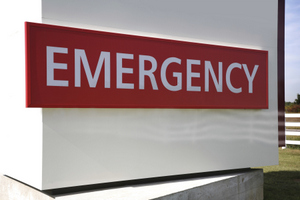Dental emergencies may happen from injury or trauma to the teeth or as the result of an abscess or cracked filling. In all these cases, call our office immediately to tell us what is happening. The following information gives you further details on how to manage emergency events.
What Is Defined As A Dental Emergency?
While you should call us anytime, you have a dental concern, and sometimes you need to get immediate treatment. So, what is considered a dental emergency? To answer this question, we will refer to the American Dental Association’s definition of a dental emergency. The ADA defines a dental emergency as a potentially life-threatening event that requires immediate treatment to stop continued bleeding, lessen severe pain, or reduce the symptoms related to an infection. Therefore, an emergency may include uncontrolled bleeding, a bacterial infection of the soft tissue, a dental swelling that compromises the airway, or a trauma involving the facial area, including the jawbone.
When Is Urgent Care Needed?
The ADA further elaborates on the need for urgent care when conditions necessitate relieving infection risk or discomfort. In these instances, the patient may be suffering from a pulpal inflammation, third-molar pain, abscess, a tooth fracture, or similar trauma. Any pain or swelling that is severe should be checked without delay. Make sure you have our number on speed dial so you can contact us easily. If you are experiencing an emergency, the last thing you want to do is to look up our number.
Whether you have a dental emergency or need to have a filling replaced, you can always reach our office. Give us a call for any dental concerns or injuries. We can help you relieve any type of dental pain or infection using the latest innovative dental therapies. While some dental emergencies occur without warning, we can also help you prevent some emergencies from happening. Regular cleanings and exams will help you maintain your dental health so you can significantly reduce the risk of an emergency.

